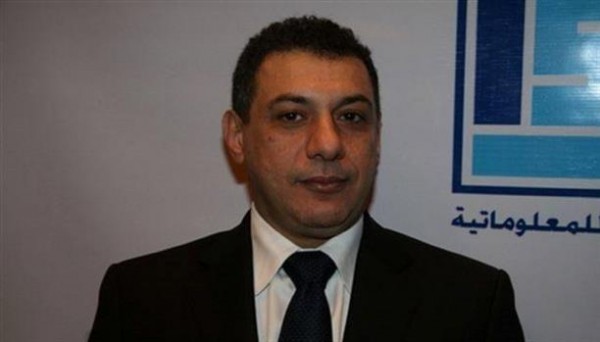
The family of Nizar Zakka a Lebanese national who is being detained in Iran announced Wednesday that contact has been severed with him since ten days.
“We the family of Nizar Zakkar, who is being arbitrarily detained in Iran, express grave concern over the fate of our son with whom direct communication has been severed since ten days. Lebanon’s embassy in Tehran has also failed to secure any contact with him,” the family said in a statement.
The family urged Iranian authorities to clarify his fate in a speedy manner , holding them responsible for any harm. The family also urged the Lebanese government and “specifically Prime Minister Saad Hariri to act quickly and summon the Iranian ambassador to Beirut to question him about Nizar’s fate.”
“We also ask the Lebanese constitutional institutions, especially the Presidency and the Speakership, to take charge of Nizar’s case in order to end his plight and liberate him from his prison,” the family added.
Zakka has been detained in Iran since 2015 over spying allegations. He was sentenced in 2016 to 10 years in prison and a $4.2 million fine.
Zakka, a Lebanese businessman and information technology expert who holds US permanent residence, was snatched in September 2015 by Iranian authorities on his way to the airport. He was sentenced to ten years in prison for spying for the United States.
Amnesty International has said Zakka had only two court hearings before the ruling and received only limited legal assistance. The closed-door tribunal handles cases involving alleged attempts to overthrow the government.
The court that sentenced Zakka bypassed common judicial procedures and, despite this, was only able to accuse him of contacting the US government, which, in their book, was another word for espionage.
Zakka, who had made a very successful career for himself in Washington, where his family and children live, found his world turned upside down, accused of a crime he did not commit and caught up in a game he did not wish to play.
The Lebanese Embassy in Tehran has refrained from offering assistance to Zakka or dispatched any consular staff to follow up on the case or even to sign legal papers allowing his family access to the required funds to support his cause.
Last August Nadim Zakka, Nizar’s son, voiced frustration at what he saw as the silence of the Lebanese political establishment, which he said has been intimidated by the presence of Iran-aligned Hezbollah among them.
“Iran kidnapped my father based on false and misleading information, probably coming from some of their partners in Lebanon,” Nadim Zakka said. “By the time they realised their mistake, they were caught in a catch-22 since they couldn’t release and admit they had kidnapped and taken hostage an innocent Lebanese who has never belonged to any political party anywhere in the world, which obviously includes Lebanon.”
Much of the effort to secure Zakka’s release has been spearheaded by his family in Lebanon and the United States. Despite their ardent public and private appeals, the Lebanese government had until now taken no concrete actions, denying Zakka the basic rights accorded him as a Lebanese national.
Zakka was the leader of the Arab ICT Organization, or IJMA3, an industry consortium from 13 countries that advocates for information technology in the region. Zakka disappeared Sept. 18, 2015, during his fifth trip to Iran. He had been invited to attend a conference at which President Hassan Rouhani spoke of providing more economic opportunities for women and sustainable development.
Ironically, Zakka had made the trip to Tehran on an invitation from Shahindokht Molaverdi, Iran’s vice-president for women and family affairs, to be a keynote speaker at a conference on women’s entrepreneurship.
All cultures place great emphasis on honouring guests and extending protection and hospitality. For the Arabs, a guest is a virtual extensionof one’s pride and honour and, by custom, any guest is entitled to room and board, even before the host asks for a name and destination.
Unfortunately, that spirit doesn’t seem to stretch as far as Iran’s regime, which, since its inception in 1979, has mistreated guests and included hostage-taking as part of its foreign policy. In the public consciousness, people think such acts as restricted to the US Embassy hostages of 1979. However, Iranian prisons house a wide array of multinational prisoners and, among them, is Lebanon’s Nizar Zakka.

Leave a Reply
You must be logged in to post a comment.